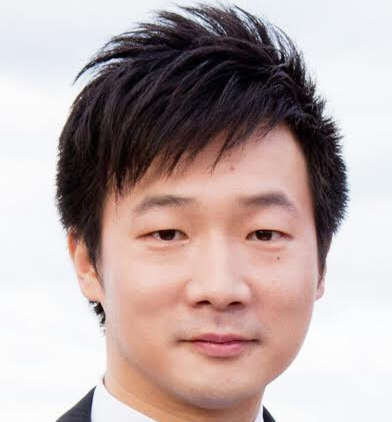
Doctoral Researcher/Machine Learning Ops
wei.tan2@monash.edu
Machine Learning, Monash Clayton Campus
Melbourne, VIC, Australia
I am a PhD researcher specialising in data analytics and machine learning, seeking opportunities to leverage my knowledge in the real-world problems.
Biography
I am a PhD researcher with a background in data science, computer science and mechatronics engineering. My research will focus on Active Learning, which optimises the labelling budget and time for the human annotator. I also work for the industry research project funded by Google Turning Point. The project involves both Google Turning Point team ( Dan Lubman, Debbie Scott, Sam Campbell) and Monash team ( Wray Buntine, Lan Du). The purpose of this project is to create a Surveillance System that will allow for the collection of a more comprehensive set of coded ambulance data relating to SITB, mental health, and AOD attendances in order to inform policy, practise, and intervention.
I graduated with a double degree in computer science and mechatronics engineering from the University of Melbourne, where I studied and built a robot for the 2009 robotcup competition. Darwin Lau and I successfully designed and implemented a feedback system for path navigation on an autonomous robot.
From 2010 through 2017, I worked as an IT support analyst, report analyst, and data engineer after graduating from university. My responsibility during this time at work was to create and produce business reports. Use SQL and Excel to analyse business needs and problems, as well as to create electronic databases, analyse reports, assist in the development of reporting software, and find effective ways to company data effectively.
From 2017 to 2020, I enrolled in a part-time master's degree at Monash University in Data Science. Additionally, I worked on other industrial-related projects, including Umine and Broadspectrum. I worked as an operations manager at Umine, a blockchain company. My responsibility was to guide the team to develop cryptocurrency mining software. We used data from public trade exchanges and processing power to maximise the efficiency of mining. For the Broadspectrum project, I worked under the supervision of Lan Du to develop a fleet utilsation model with AI and ML technologies.
Awards and Honors
-
Bachelor of Engineering (BE)/Bachelor of Computer Science (BCs), Mechatronics/Computer science, Honor degrees, 2009.
-
Winner for FIT5149 Applied Data Analysis kaggle competition, 2019, Certificate.
-
Master of Data Science (DS), Information Technology, High Distinction, 2020.
-
Best Demo Certificate in AIED 2023: Jionghao Lin, Danielle Thomas, Zifei Han, Wei Tan, Ngoc Dang Nguyen, Shivang Gupta, Ering Gatz, Cindy Tipper, Kenneth R. Koedinger Personalized Learning Squared (PLUS): Doubling Math Learning through AI-assisted Tutoring.
Referred Journals
-
Lin, J., Singh, S., Sha, L., Tan, W. , Lang, D., Gašević, D., & Chen, G. (2022). Is it a good move? Mining effective tutoring strategies from human–human tutorial dialogues. Future Generation Computer Systems, 127, 194-207.
PDF | Future Generation Computer Systems
Referred Conference Papers
-
Tan, W., Du, L., & Buntine, W. (2021). Diversity Enhanced Active Learning with Strictly Proper Scoring Rules. Advances in Neural Information Processing Systems, 34.
PDF | NeurIPS 2021 -
Nguyen, N.D., Tan, W., W., Buntine, W.L., Beare, R., Chen, C., & Du, L. (2022). AUC Maximization for Low-Resource Named Entity Recognition.
PDF | AAAI 2022 -
Tan, W., Lin, J., Lang, D., Chen, G., Gašević, D., Du, L., & Buntine, W.L. (2023). Does Informativeness Matter? Active Learning for Educational Dialogue Act Classification.
PDF | AIED 2023 -
Lin, J., Tan, W., Nguyen, N.D., Lang, D., Du, L., Buntine, W.L., Beare, R., Chen, G., & Gašević, D. (2023). Robust Educational Dialogue Act Classifiers with Low-Resource and Imbalanced Datasets.
PDF | AIED 2023 -
Lin, J., Thomas, D. R., Han, F., Gupta, S., Tan, W., Nguyen, N. D., & Koedinger, K. R. (2023). Using Large Language Models to Provide Explanatory Feedback to Human Tutors.
PDF | AIED 2023
Projects
Investigation on advanced robots from Boston Dynamics, 2018
The purpose of this project is to conduct research on the high-level deep learning technologies implemented by companies such as Boston Dynamics in the robotics industry.
It demonstrates how computer vision technology is utilised to use the camera to control the robot's movement.
The article discusses the supervised and unsupervised deep learning principles that underpin image processing used to map the environment around the robot.
(website link)
Data visualisation for road crashes in Victoria, 2018
The purpose of this project is to design and implement a data visualisation dashboard that investigates the facts around traffic accidents in Victoria. It instructs the audience on external and internal factors in efforts to support them create a better road service environment.
The data is obtained from the Australian Bureau of Statistics, and the dashboard was developed using HTML, CSS, D3 javascript, and Python.
(website link)
Exploration for Australian corals bleaching, 2018
The objective of this project is to create a data visualisation dashboard that will present facts about Queensland's coral bleaching. The Australian Bureau of Statistics provided the data, and the dashboard was created using R.
(website link)
(dashboard link)
